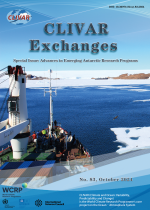Right now, two research vessels carrying some 40 marine scientists are battling stormy conditions in the Tasman Sea to learn more about gigantic subsurface waves—some 1,000 feet high—that are critical to both ocean health and accurate climate modeling.
These internal ocean waves form, move, and break just like...

























